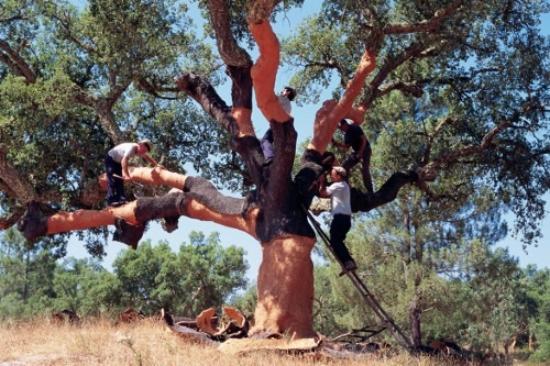Saving the Planet One Cork at a Time
- Ophelia Santos

- Feb 12, 2021
- 2 min read
Among the myriad aromas that make wine drinking so pleasurable, the smell of moldy, musty wet cardboard is not one of them.
Because the fault is known as “cork taint”, it is only natural to assume that the humble cork stopper is to blame. In fact, the truth is a little more complicated.
2,4,6-trichloroanisole or TCA, the compound that causes cork taint, can occur in any bottle of wine, regardless of type of closure. TCA is created when fungal microorganisms react with chlorine, a chemical frequently found in many pesticides and cleaning supplies. These microorganisms are found in wood – yes, including barrels – and not just in cork trees. This means that any wooden surface can also be a source of cork taint in the winery and cork is not always the culprit.
Today, with plenty of alternative closures to choose from, there is still much debate over the best option for sealing wine bottles. Interestingly enough, natural cork is once again in the limelight – but this time, the angle is more flattering.
A recent study by Ernst & Young revealed the important role that cork plays in reducing the wine industry’s carbon footprint. Wine transport alone generates large amounts of carbon emissions because the traditional glass bottle continues to be the global market’s packaging of choice.
The cork industry provides a way to offset these emissions by way of the 2.2 million hectares of forest found mostly in Portugal, Spain, Italy France, Morocco, Tunisia and Algeria. Cork trees absorb millions of tons of carbon dioxide that would otherwise be released into the atmosphere, thus reducing greenhouse gas emissions that cause climate change.
The list of cork’s virtues also includes sustainability: the Mediterranean cork forests house one of the planet’s most diverse ecosystems that includes indigenous plants and endangered species such as the Iberian Lynx and Imperial Eagle. From an economic standpoint, cork harvesting requir
es specialized skills and at 135 Euros per day, it is one of the highest-paying agricultural jobs in the world.
The modern message from the cork industry is clear: natural cork is not just good for wine. It is good for the planet and for people, too.











Wonderful article..concise, informative, interesting and well done. Keep up the good work. Thanks, Chef Giovanni